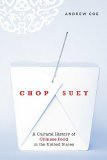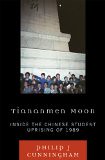
 Midnight in Peking: How the Murder of a Young Englishwoman Haunted the Last Days of Old China
Midnight in Peking: How the Murder of a Young Englishwoman Haunted the Last Days of Old China Paul French
It's taken me a few days for me to say anything about this book besides "I just... wow. I mean, it's just, Beijing and... wow. I mean... wow." And that goes for the rather explosive content and also the way French can spin out a story. (I mean, wow.)
In early January, 1937, the night of Russian Christmas, Pamela Werner was murdered. Horrifically. Her body was found the next morning outside the supposedly haunted Fox Tower in Beijing.* She lived with her father in the Tartar city, just outside the Foreign Legation, so the investigation is under the control of the Chinese police. But she's a British subject, the daughter of a former British Consul, and this isn't an average robbery gone wrong. To get around the British legation promoting an envoy to the case that they would control, the Chinese police appoint a detective from Tianjin, where Pamela went to boarding school. DCI Dennis was former Scotland Yard and wasn't under the legation's control. His hands were tied by the British as to what he could and couldn't do, but he wouldn't get in the way of the investigation.
But the British want to save face and hinder things at every turn. The Consul in Beijing has a personal dislike of Werner's father. National and personal politics play large. The White Russians who run the Badlands, the strip of seedy dive bars, opium dens, and brothels between the Legation Quarter and the Tartar city, aren't talking. In Tianjin, Pamela was a quiet school girl. In Beijing, she had several boyfriends and liked to party. Meanwhile, the Japanese are surrounding the city and getting ever closer. Everyone's fleeing-- either the investigation or the threat of war.
The murder remains unsolved, and the case technically open, but no one working on it. Pamela's father starts his own investigation and gathers his own evidence and reaches his own conclusions about who murdered his daughter. The Japanese get involved. Then they're not. Different personal and national politics at play, but they still have a major role in the investigation. Pamela's father has a compelling case to make against his main suspect (one that French agrees with) but the Consul and London are ignoring his pleas and evidence. Personal politics make it easy to write him off. The war makes it easy for his files and notes to get shoved in a drawer and lost (until French found them in an uncataloged file at The British National Archive in Kew.)
Was it the KMT? The Japanese? A jealous boyfriend? Was it a message to someone else? Or something far more sinister? (Answer: far far far more sinister.)
Secret nudist colonies, stateless prostitutes, political assassinations, and cocktail hours spent at smoky back tables gathering gossip, rumor, clues and evidence, Shura**... and a world on the brink of war. Basically, but John LeCarre and Eileen Chang in a blender and make the result a true story, and you get
Midnight in Peking.
French has a gift for spinning out the suspense and tension. He deftly explains the back-history and the politics, making it understandable so the reader can get a sense of the all the factions at play, but without letting it get in the way of the story he's trying to tell. It's a powerful, gripping read.
I will warn you it's not for the faint of heart. Pamela's murder is truly horrific. Both the state of her body and the conclusions Werner reaches are beyond any
Law & Order episode.
The end papers of a beautifully illustrated map of Old Peking, BUT they don't function as the most useful map. This book really needs a good map to help the reader get his or her head around the geography of everything.
It's a fascinating and distressing look at the last days of colonial Beijing. It's a page-turning murder mystery. And I mean... wow. Just... wow.
*Beijing = Peking. They are pronounced exactly the same. Throughout the book, French uses the old Wade-Giles system of Transliteration. Tianjin reverts back to Tientsin. I assume it's because it's more historically accurate. The Pinyin Romanization standard was invented by the communists over a decade after the events in this book. It also adds to that colonial old-world feel that pervades the drawing rooms and hotel bars where the action takes place. However, as someone whose mind works in Pinyin, this took a bit getting used to. Although, if you want to be super-technical about it, at the time this book takes place the city's name had been changed to Beiping/ Pei-p'ing because jing means capital and in 1928, Chaing Kai-Shek had moved the capital back in Nanjing (Nan means south, Bei means north) so Beijing was no longer the capital and so its name changed (back) to Beiping (ping means plain. The city had been named Beiping at the beginning of the Ming dynasty, when the Ming capital was at Nanjing. Before then, it had a few different names.) Until 1949 when Mao moved the capital back to Beijing and changed the name back. Interestingly, Nanjing never changes its name when it's not the capital. Thus endeth my supreme nerdiness.
**Shura was a half-Chinese, half-Russian of indeterminate sex who passed as man or woman, European or Chinese, depending on Shura's mood. Shura was a wine dealer, cabaret star, and a jewel thief. After the Bolsheviks murdered Shura's Tsarist official parents, Shura walked across Siberia and Mongolia to get to China. You know, AS YOU DO. Shura is a minor character, who greatly helps Werner's investigation, but I'm currently mildly obsessed.
Book Provided by... my local library
Links to Amazon are an affiliate link. You can help support Biblio File by purchasing any item (not just the one linked to!) through these links. Read my full disclosure statement.
 Little White Duck: A Childhood in China Na Liu, illustrated by Andres Vera Martinez
Little White Duck: A Childhood in China Na Liu, illustrated by Andres Vera Martinez























